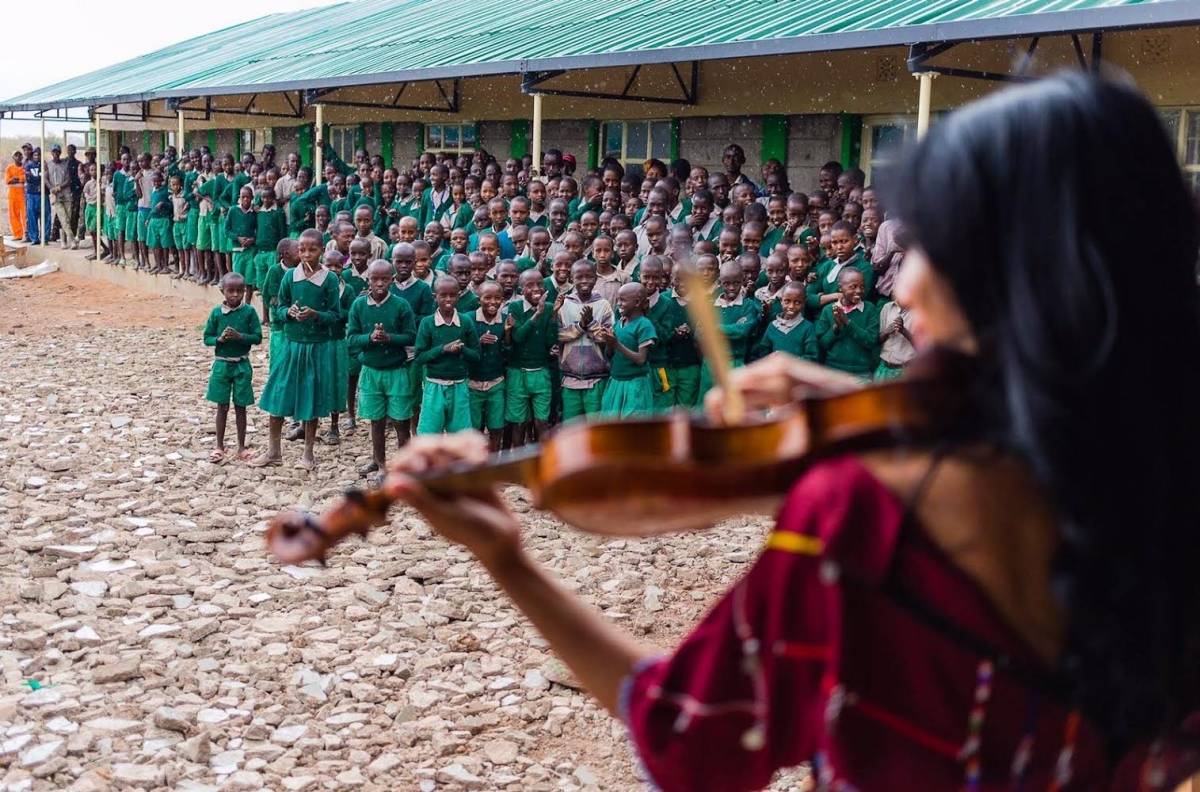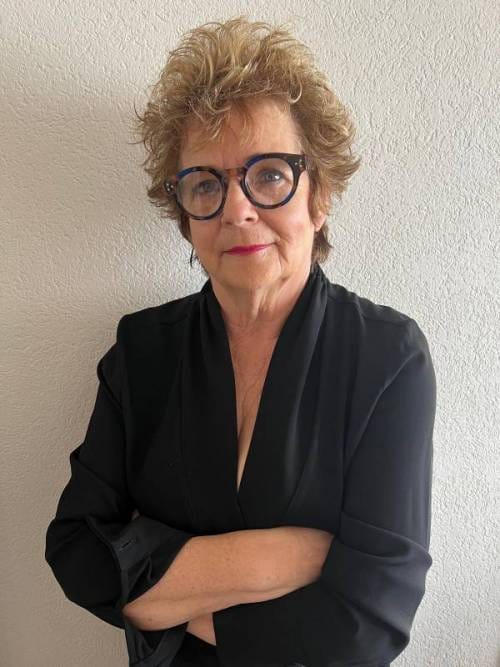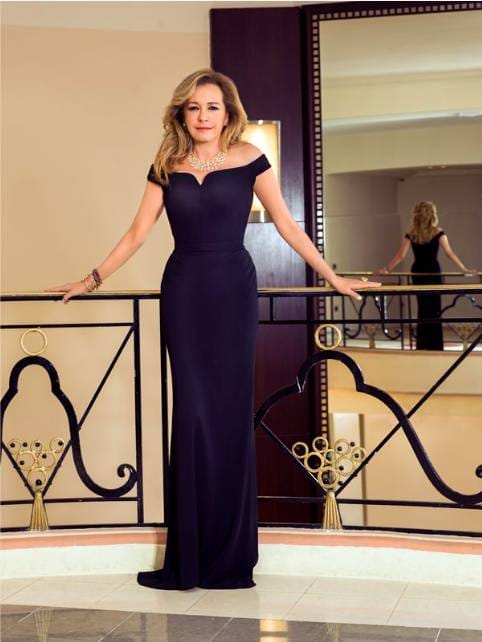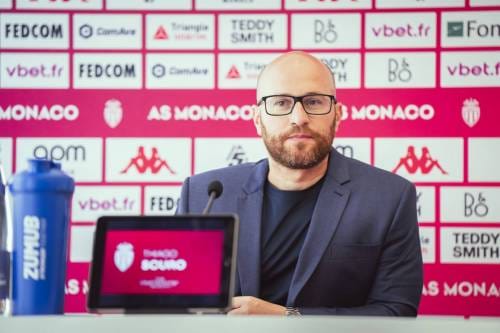She walks in briskly, greets us warmly, settles with all simplicity in the Métropole Hotel lobby, a stone’s throw away from the Opera where she is being expected for the rehearsal. When asked for photos, including a portrait, she reflects on cosmetic surgery, its downsides and excesses. For her part, she chose to be natural, spontaneous, true. All the more beautiful for it. Zhang Zhang, the Monte-Carlo Philharmonic Orchestra violinist, deplores the fashion luring Chinese models into transforming their faces to resemble Western celebrities, like Monica Bellucci. “Change your features, whiten your skin, do a nose job… You have to appear Western and change your face to become famous and rich. It’s sad, it’s a rejection of who we are.” As to Zhang Zhang, she is totally true to herself. It is her belief that to know where we are going, it takes to remember where we came from.
An incredible journey made of upheavals, work, resilience. Born in the Mao’s China, Zhang Zhang was a mistreated, beaten child, deprived of a secondary and high school education. However, that did not get into her way of becoming an outstanding musician after attending the most prestigious conservatories, namely in the United States. An extraordinary destiny she describes in her book: “The Way of the Bow”. This powerful work truly gives hope. Every human being can have a chance. Every child is storing a talent. Zhang Zhang firmly believes that nothing is impossible. And she is a living example of that.
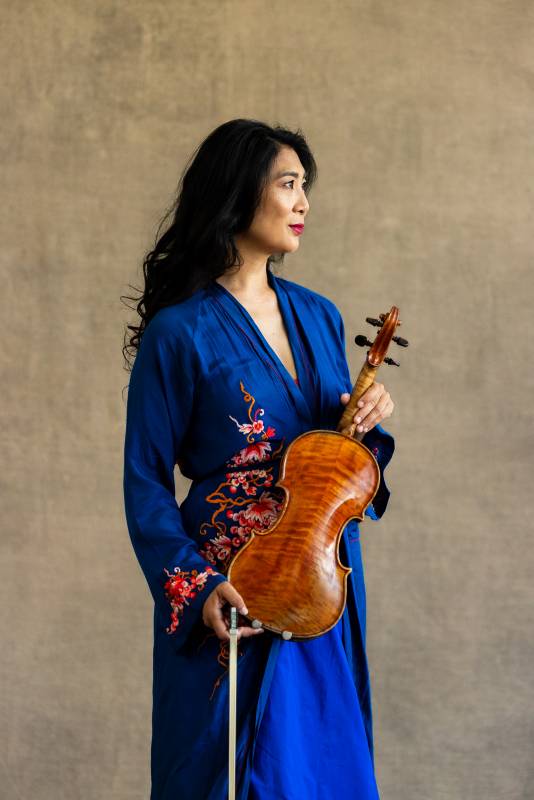
Hello Monaco: How old were you when you got your very first violin?
Zhang Zhang: I was a 1-year-old or close to it. I was barely able to walk when my father made me a little cardboard violin, with a piece of bamboo for a bow taken from my grand-parents’ garden. He was determined that his child to be, whether a girl or boy, would be a violinist. That was his ambition. A violinist himself, he was playing in the only orchestra tolerated by the regime and protected by Mrs. Mao… I subsequently had no musical education, however. Just a hard training like a racehorse. When mentioned that I became a violinist thanks to my father I always say “No, rather in spite of him!”
HM: I was actually about to say that for me you are an enigma. You were mistreated and could have taken the opposite direction. But you still became what your father wanted you to be.
Zhang Zhang: I do talk about it in my book. I was a beaten child, abused in the sense of being prevented from attending school. In the context of the cultural revolution, however, my father was also a victim, that of the regime. I saw him getting arrested in front of my own eyes because he was somewhat rebellious. At that time, every art institution was run by a political supervisor who knew nothing of the matter. As a concert-master, my father could not tolerate that. He was a very famous musician, only allowed to play as authorized for certain pieces. Certain composers were banned. Camille Saint-Saëns, for example, was too religious. Beethoven was tolerated for his support of the French revolution. That, until they realized that his “Emperor” concerto defined him as a monarchist! I am totally against the “cancel culture” which reminds me of those times.
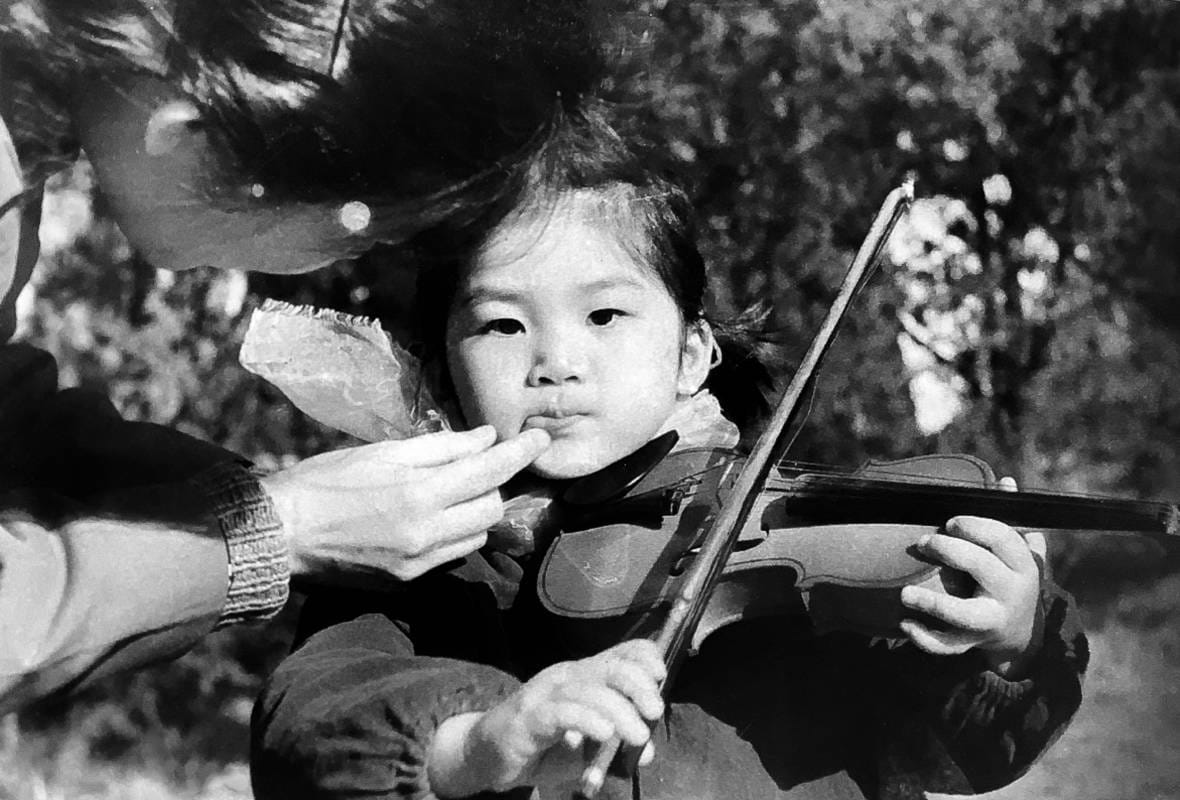
HM: What do you mean by that?
Zhang Zhang: These days there is also racism against white people. European orchestras may be criticized for being too white or too male! A small orchestra in England fired fourteen musicians because they didn’t have enough diversity! It is shameful. Classical music is indigenous to Europeans, you have to be consistent. Shall we now say that there are too many Chinese at the Peking Opera? There is no such thing as positive discrimination! I am opposed to any form of it. Children should be encouraged to do what they want. And then you have to take the best, that’s all. Whether they are white, black or yellow, men or women. Auditions must totally take place behind a screen. The Monaco Orchestra has twenty nationalities and the Conductor is Japanese.
HM: Have you been directly confronted with racism?
Zhang Zhang: Yes, of course. During the Covid crisis I was even called a “pangolin eater”. I have also suffered insults because of my opinions. I am a Chinese woman who does not fit into the “victim” box. When people see a woman belonging to a minority, they don’t understand how she can defend certain values, classical music for example, without feeling at all oppressed by the system. It is believed that we must be loyal to our people even if we grew up elsewhere! As far as I am concerned, I have a Canadian passport, I am a Republican and I feel comfortable in France and in Monaco where I have lived for 23 years. The Principality is real about “living together”. We have 139 different nationalities here!
As for France, I believe it to be a country with a strong critical sense. Every July 14, on the national holiday, I play “La Marseillaise” which for me is a symbol of freedom. I don’t understand how certain French people may spit on it. For me, it’s a mystery.
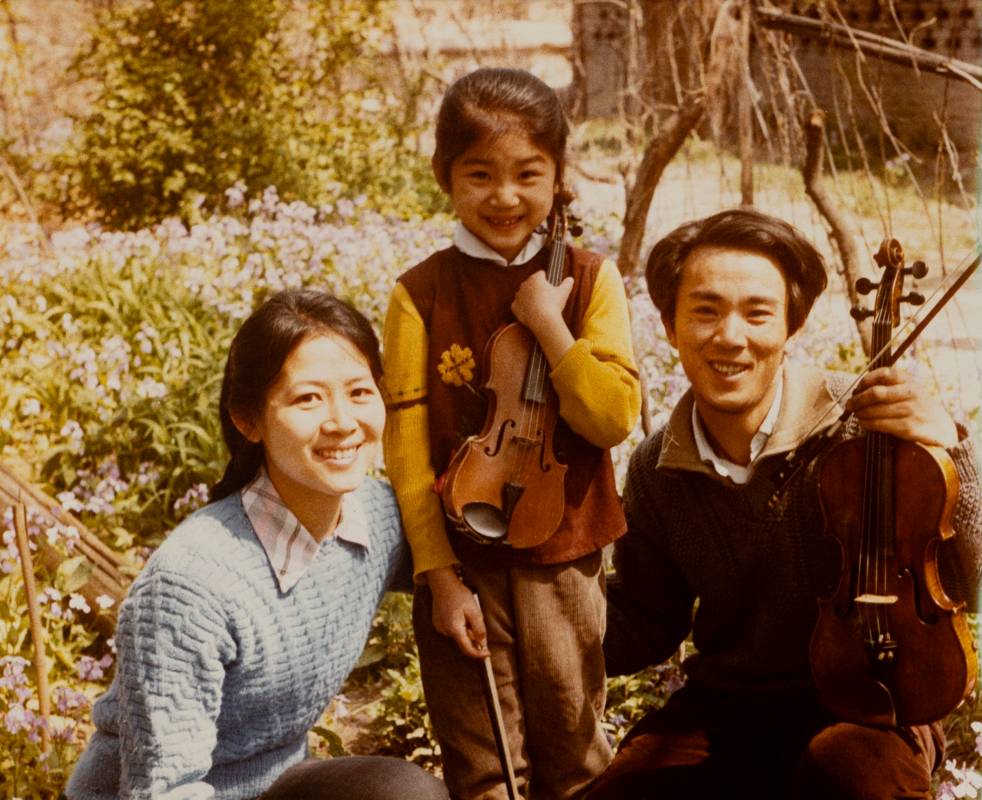
HM: A virtuoso violinist, you are also a woman of conviction. Tell us more about the “Zhangomusiq” charity…
Zhang Zhang: I have created this association thanks to the support of people who believe in my ideas. It all started during the tsunami in the Indian Ocean in December 2004. That’s when I held a concert in the Anglican church of Monaco to help a fishing village in Sri Lanka. The church was packed, everyone gave what they had to give and the outcome exceeded our best hopes. The money was entirely paid to an NGO helping victims. Just prior to that, I had a chance to meet Sister Emmanuelle and that impressed me a lot. I understood that even if I don’t have personal wealth, my violin is my means of helping people.
I thus launched a new concept of charity concerts to generate prompt aid. I am now looking for associates to take care of the rental and musicians’ paychecks. All the proceeds are paid to the charities. The concert also gives the latter an opportunity to talk about their projects. People experience a moment of beauty together. It’s a kind of communion. In addition, they contribute to something that gives them a sense of being useful. I encourage all musicians to take this path and participate in small charity concerts.
I believe in the fundamental kindness of human beings. But it all depends on education… Music is universal, it speaks to everyone. When I met the Maasai people in Kenya, they sang for us. They had an extraordinary musicality without having ever seen a violin! We understand each other through music. Every human brain has a region solely stimulated by it, as proven by scientists…
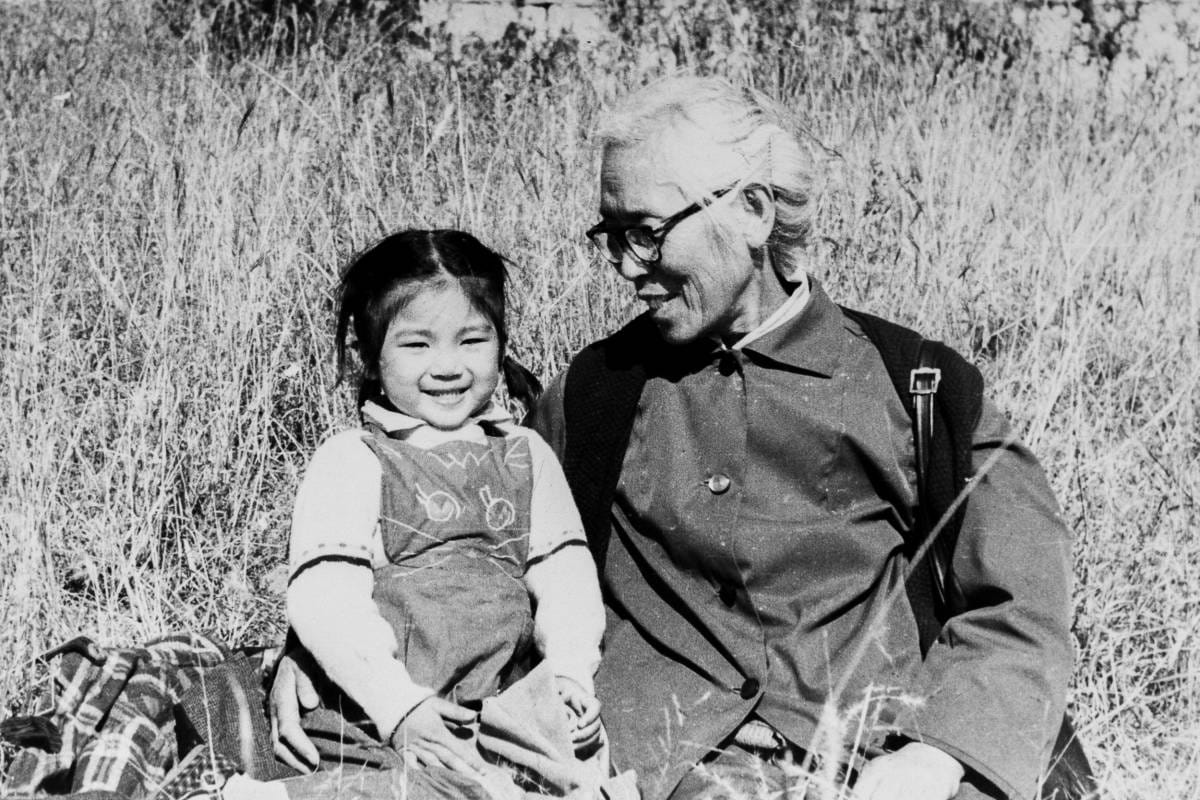
HM: But isn’t classical music reserved for the elite?
Zhang Zhang: In France as in Monaco everyone has a chance. You don’t have to be rich to become a musician. Some very modest families get to send their children to conservatories. All it takes is willingness to do music, and to succeed, you have to work. As a 13th century Chinese proverb goes, to start with, the nature of a human being is good. If a child is poorly educated, it’s the father’s fault. If he is a bad student at school, it’s the teacher’s fault… These kind of concepts were taught to young children before they even went to kindergarten. But the cultural revolution has swept it all away!
Every child has a talent to begin with. It’s a bit like a piece of jade. If we don’t sculpt it, it won’t turn into a masterpiece even if the stone is beautiful. Emancipation comes through study. We must encourage children, not lock them into victim status. A legend comes to my mind about a little boy in China who was so poor that he no longer had a candle for reading. He then captured fireflies to carry on with his studies….
HM: You don’t have children. Is it because of your own difficult childhood, your father?
Zhang Zhang: Well, I would think so, definitely. I was traumatized by my parents’ marriage. They were both famous and beautiful. They came across as a perfect couple… But as soon as we left China, my father lost his status. In Canada, he happened to be nobody. His frustration led him to beat me even harder. My mother didn’t say anything. She was crying, that’s all she did…I was too scared for my children to go through what I went through. It’s an irrational fear. I certainly wouldn’t have found a man like my father, but you never know?… I worked on myself and now I’m more serene. I was terrified of passing on these traumas as if they were a hereditary disease. I am now healed, but the moment is no longer there…
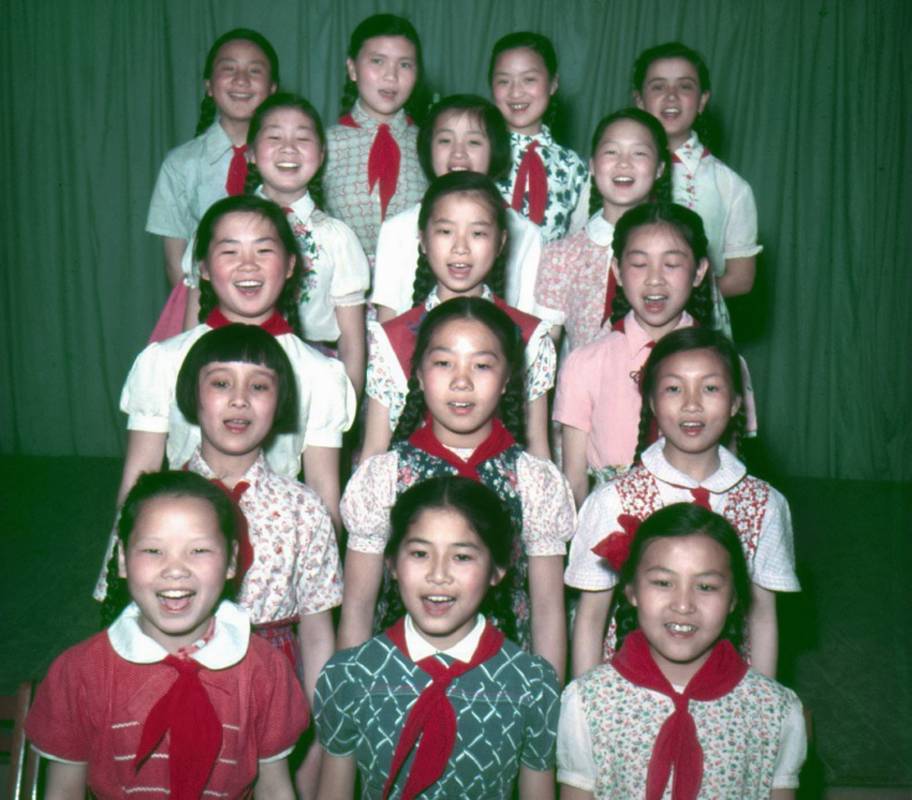
HM: What do you think of China today?
Zhang Zhang: For me, it is a thousands of years-old civilization with a great people who experienced a lot of difficulties. A very vast country, that’s always been an empire… I was not educated in China, however. I also believe in the resilience of the Chinese people.
HM: Do you have a message to convey to humanity?
Zhang Zhang: Being universal is the most important value. What unites us is much stronger than what separates us.
HM: Do you believe in God?
Zhang Zhang: I would happily define myself as a Taoist. That being said, I love playing at the Vatican…
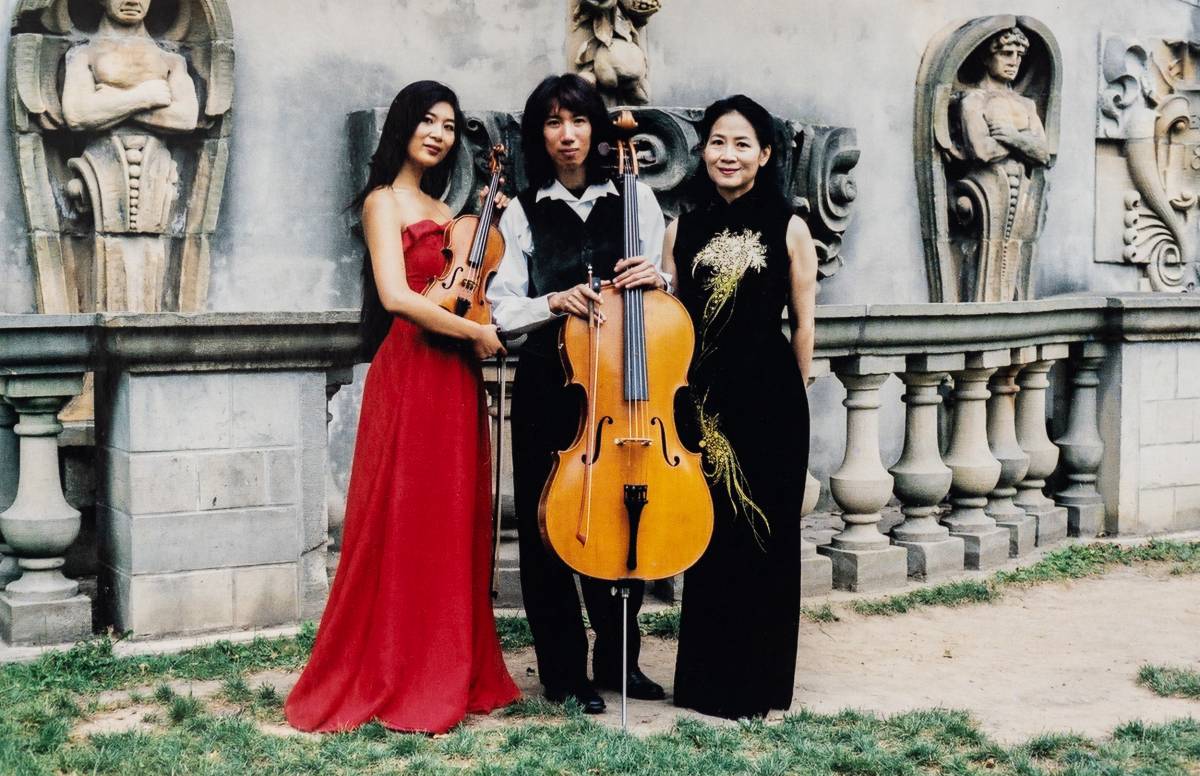
HM: Do you have a dream?
Zhang Zhang: Plenty! More than anything, I would like artists all over the world to put on shows to help those who need it most.



